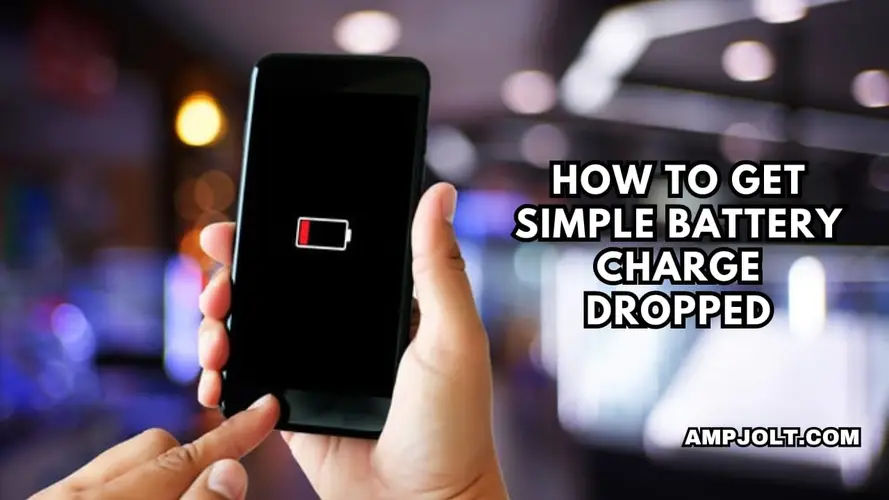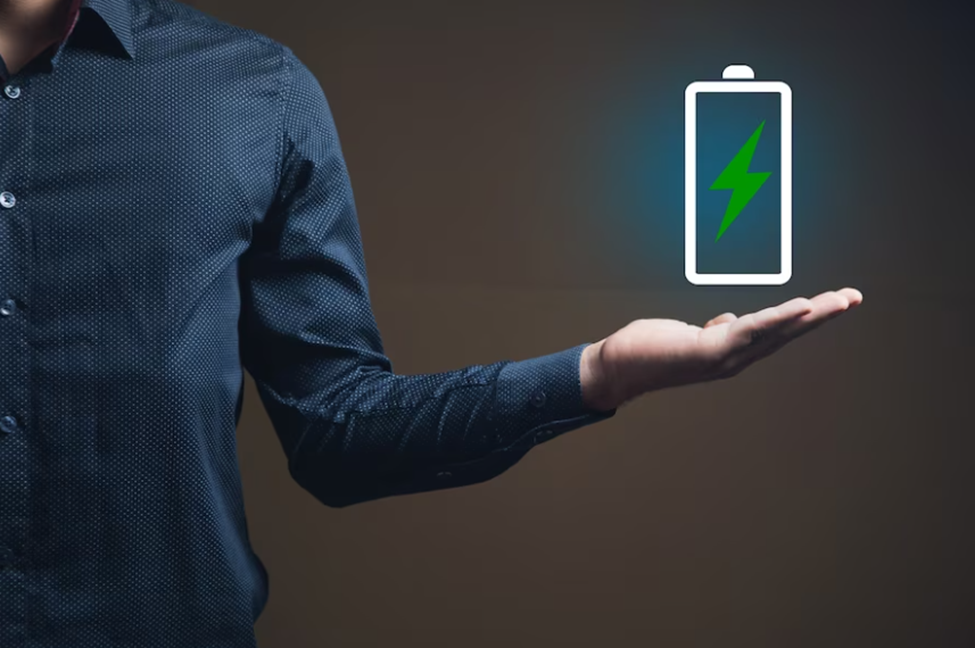How to reset electric bike battery?
April 14, 2018

Facing a simple battery charge can be a daunting experience, with potential consequences ranging from fines to incarceration. However, not all hope is lost. In many cases, individuals find success in having such charges dropped or reduced through a combination of legal strategies and effective representation.
To increase the chances of getting a simple battery charge dropped, consult with a skilled criminal defense attorney. They can analyze the case, challenge evidence, explore legal technicalities, and negotiate with the prosecution.
This article aims to explore various approaches to navigate the legal landscape and increase the likelihood of having a simple battery charge dropped.
Before delving into strategies for having charges dropped, it's crucial to grasp the legal definition of simple battery. Simple battery typically involves the intentional and unlawful use of force against another person, resulting in physical harm or offensive touching. The severity of the charge depends on factors such as the extent of injuries, the relationship between the parties involved, and the presence of any weapons.

One of the most crucial steps in handling a simple battery charge is seeking the guidance of a qualified criminal defense attorney. An experienced attorney can provide an assessment of the case, evaluate potential defenses, and advise on the most suitable strategy for having the charges dropped. Legal professionals can also navigate the complex legal processes, ensuring that the accused party's rights are protected throughout the proceedings.
The strength of the prosecution's case relies heavily on the available evidence. Analyzing the evidence against the accused is a critical step in building a defense strategy. This includes reviewing witness statements, surveillance footage, medical records, and any other pertinent information. Discrepancies or weaknesses in the evidence can be exploited to challenge the case and create doubt in the minds of the court.
In cases where the accused acted in self-defense, this can be a powerful argument to have the charges dropped. Self-defense claims hinge on the belief that the accused reasonably perceived a threat to their safety and responded with force to protect themselves. The defense must demonstrate that the use of force was proportionate to the perceived threat, emphasizing the necessity of the action taken.
The reliability of witness testimony is often a crucial element in battery cases. Attorneys can challenge the credibility of witnesses by scrutinizing their statements, highlighting inconsistencies, and presenting evidence that contradicts their accounts. Casting doubt on the credibility of key witnesses can weaken the prosecution's case and increase the likelihood of having charges dropped.
Prosecutors may be open to alternative resolutions that don't involve formal charges or trials. This could include pre-trial diversion programs, counseling, or community service. A skilled attorney can negotiate with the prosecution to explore these options, demonstrating that the accused is committed to addressing any underlying issues without resorting to traditional legal consequences.
Experienced defense attorneys may identify legal technicalities or procedural errors in the handling of the case that could lead to a dismissal. This could include issues related to the arrest process, Miranda rights, or evidence collection. Successfully arguing these points in court may result in the charges being dropped.
In some instances, negotiating a plea deal may be the most practical approach to securing a favorable outcome. This involves the accused agreeing to plead guilty to a lesser charge in exchange for a more lenient sentence. While this doesn't result in the charges being dropped entirely, it can significantly reduce the potential penalties.
Presenting evidence of the accused's good character and efforts towards rehabilitation can humanize them in the eyes of the court. This can be particularly effective if the incident is out of character or if the accused has taken steps to address any underlying issues, such as anger management or counseling.
Facing simple battery charges can be a stressful and challenging experience, but individuals may find hope in exploring alternative resolutions that could potentially lead to charges being dropped. While each case is unique, understanding the available options can empower individuals and their legal representation to negotiate favorable outcomes outside the traditional legal consequences.

Pre-trial diversion programs are structured interventions designed to address the root causes of criminal behavior without resorting to formal charges and trials. These programs often involve counseling, community service, or educational courses tailored to the individual's needs. Successfully completing a pre-trial diversion program may result in the charges being dropped, offering a chance for rehabilitation rather than punitive measures.
Demonstrating a commitment to personal growth and addressing underlying issues through counseling or rehabilitation programs can be a persuasive argument for having charges dropped. This approach not only benefits the individual but also signals to the court a proactive effort to prevent future incidents. Documenting participation in counseling and rehabilitation can serve as evidence of dedication to personal improvement.
Courts may consider community service as an alternative resolution for simple battery charges. Engaging in volunteer work can demonstrate remorse, responsibility, and a willingness to give back to the community. Negotiating with the prosecution to allow community service in lieu of harsher penalties is a strategy that emphasizes restorative justice over punitive measures.
In cases where the incident arose from interpersonal conflicts, mediation and conflict resolution can be an effective alternative. Mediation involves a neutral third party facilitating communication between the parties involved to reach a mutually agreeable resolution. Resolving the underlying issues through mediation may contribute to having charges dropped, as it addresses the root cause of the conflict.
Offering a sincere apology to the victim and, if applicable, providing restitution for any damages can be a powerful gesture in the legal process. Expressing remorse and taking responsibility for one's actions can influence the decision to drop charges, especially when the victim is willing to accept an apology and move forward without pursuing legal action.
Deferred prosecution agreements involve an agreement between the accused and the prosecution, where the accused agrees to meet certain conditions set by the court. These conditions often include community service, counseling, or other rehabilitative measures. If the accused successfully completes the requirements, the prosecution may agree to drop the charges.
A proactive legal defense can involve negotiating directly with the prosecution for dismissal of charges. This may entail presenting compelling evidence, highlighting weaknesses in the prosecution's case, or demonstrating that the accused has taken significant steps towards rehabilitation. Skillful negotiation can lead to an agreement to drop charges in exchange for specific actions or conditions.
It's important to note that the availability and success of these alternative resolutions can vary depending on the jurisdiction, the specifics of the case, and the willingness of the parties involved to cooperate. Consulting with a knowledgeable criminal defense attorney is crucial for understanding the options available and crafting a strategic defense that maximizes the chances of having simple battery charges dropped.
Legal technicalities and procedural errors can play a crucial role in the defense strategy for individuals facing simple battery charges. While these technicalities vary based on jurisdiction and case specifics, they can potentially provide grounds for dismissal if successfully argued by a skilled criminal defense attorney. Here are some common legal technicalities that may lead to the dismissal of simple battery charges:
Any violation of the accused person's constitutional rights during the arrest, questioning, or search and seizure process can be a significant legal technicality. If law enforcement fails to follow proper procedures, such as reading Miranda rights or obtaining a valid search warrant, evidence collected during these actions may be deemed inadmissible. In some cases, the exclusion of key evidence can weaken the prosecution's case to the point of dismissal.
Maintaining the integrity of evidence is crucial in criminal cases. If there are issues with the chain of custody, meaning there are gaps in documenting the handling of evidence from the crime scene to the courtroom, defense attorneys may challenge the reliability of the evidence. This can lead to the exclusion of critical evidence, potentially resulting in the dismissal of charges.
The prosecution must establish the authenticity of any evidence presented in court. If the defense successfully challenges the authenticity of key pieces of evidence, such as photographs, videos, or documents, the court may rule that the evidence is inadmissible. Without crucial evidence, the prosecution's case may unravel, paving the way for dismissal.
Witness testimony is often a cornerstone of criminal cases, including those involving simple battery charges. If the defense can demonstrate that a witness has credibility issues, such as a history of dishonesty or bias, it can cast doubt on the reliability of their testimony. Challenging the credibility of key witnesses can weaken the prosecution's case and may contribute to a dismissal.
The statute of limitations sets a time limit for filing criminal charges after an alleged offense. If the prosecution fails to file charges within the specified timeframe, the defense may argue that the charges should be dismissed based on the expiration of the statute of limitations.
Law enforcement must have sufficient probable cause to make an arrest. If the defense can demonstrate that there was no valid reason for the arrest or that the arrest was based on insufficient evidence, it may lead to a dismissal of charges.
Successfully leveraging these legal technicalities requires a thorough understanding of criminal law and procedural rules. Working with a knowledgeable criminal defense attorney is essential, as they can identify and argue these technicalities in court, increasing the likelihood of having simple battery charges dismissed.
Successfully navigating the legal landscape to have simple battery charges dropped requires a strategic and thorough approach. Consulting with a knowledgeable attorney, evaluating evidence, and exploring various defense strategies are essential steps in building a robust case. While there are no guarantees in legal proceedings, employing these strategies can significantly improve the chances of achieving a favorable outcome for individuals facing simple battery charges.
Simple battery typically involves the intentional and unlawful use of force against another person, resulting in physical harm or offensive touching. Individuals might be charged with simple battery if they are accused of physically harming someone without legal justification.
Evidence such as witness statements, surveillance footage, and medical records is vital. Analyzing this evidence helps build a defense strategy by identifying weaknesses, inconsistencies, or discrepancies that can be used to challenge the prosecution's case.
Self-defense claims assert that the accused reasonably perceived a threat to their safety and responded with force to protect themselves. To be successful, the defense must demonstrate that the use of force was proportionate to the perceived threat.
Yes, witness credibility can be challenged by scrutinizing their statements, highlighting inconsistencies, and presenting evidence that contradicts their accounts. Weakening the credibility of key witnesses can cast doubt on the prosecution's case.
Plea bargaining involves the accused agreeing to plead guilty to a lesser charge in exchange for a more lenient sentence. While this doesn't result in charges being dropped entirely, it can significantly reduce potential penalties.
While employing these strategies can significantly improve the chances of a favorable outcome, there are no guarantees in legal proceedings. The effectiveness of each strategy depends on the specific details of the case and the legal expertise involved.
Comments
Write a comment